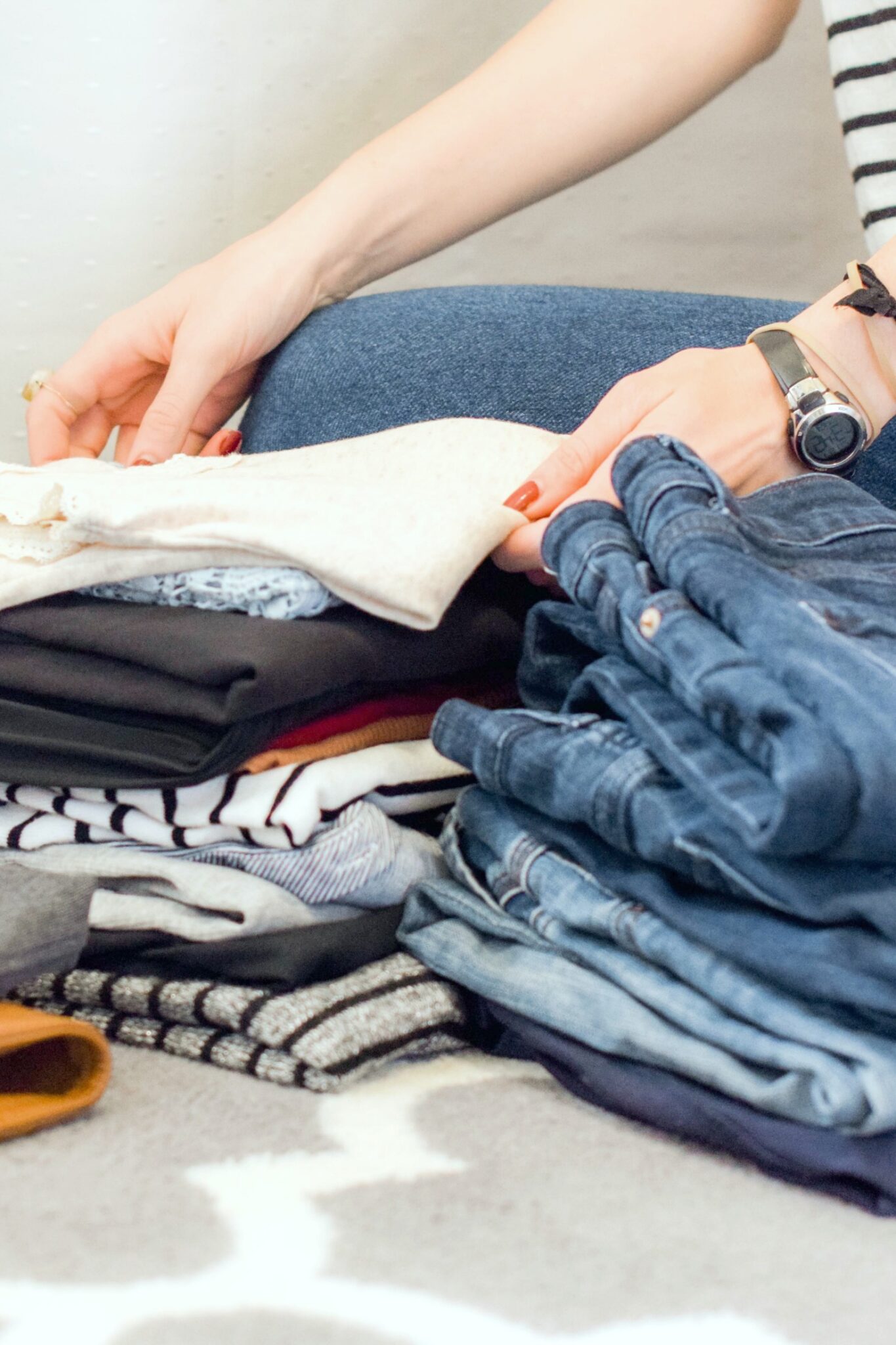7 Ways to Help Your Child Get Better Sleep & Stay Dry

Help Your Child Get Better Sleep
To ensure that kids will thrive and be at their best during the day, they need to get a restful and uninterrupted night of sleep.
The quality of their sleep will have a big impact on their overall brain health. Studies have shown that it’s one of the keys to our child’s entire well-being. Sleep affects children’s ability to manage emotions, regulate behaviour, integrate information, and focus.
Whether your kids are experiencing bad dreams or nighttime wetting, disruptive sleep can put your child’s development at risk. Their brains will lack the rest needed to grow optimally. Their insulin levels and metabolism may become imbalanced, and their immune functions can become compromised.
sleep doesn’t need to be elusive for our kids.
You can help them get into healthy sleep habits and pre-bedtime routines so that they become hard-wired into their brain system for life.
I had the pleasure of meeting Child and Family Therapist, Michele Kambolis last year at the GoodNites event at Great Wolf Lodge Niagara. She shared her story with us and taught us how to help our kids if they are experiencing nighttime wetting.
Read on for her tips and 7 ways you can help your child get better sleep! Because if they’re rested, it will be a good day for everyone, right
1. Set a Clear and Concise Transition Time
Creating a transition that helps them to get accustomed to unwinding is essential. Shut down homework, technology and high drive activity, opting instead for calming activities like bath time and reading. This signals your child’s brain to slow down and relax.
When they’re ready, allow your child to be independent with their nighttime routine to ensure they learn how to settle in on their own. Encourage them to brush their teeth on their own or read independently for 10-15 minutes before bed.
2. Create a Sleep-Inducing Environment
A child’s language is play, and toys are their words – so imagine how fired up their brain system becomes as they scan a room lined up with stimulating toys.
Instead, try placing toys in bins, well out of sight, and transition their room into a low-key environment with soft sheets, fuzzy socks, and relative quiet.
If your child is afraid of the dark, try a dim nightlight or glow-inthe-dark wall stickers to keep them comfortable without disturbing their sleep.
3. Limit the Lingering
Children are notorious nighttime lingerers. I know that my youngest will find any excuse with endless requests for a snack, a glass of water, another trip to the bathroom or just one more hug. Though I am a sucker for one more hug. I’ll admit!
Once you’ve filled your child up emotionally with that nighttime bonding time, let them know when they’ve reached the bedtime bottom line with a “last call for questions.”
Setting those final limits and ticking to them will give your little lingerer the firm message that their sleep is more important than extend-a-play.
4. Teach Self-Soothing
When children finally fall into bed and tune into their internal cues, they can become bombarded with a flurry of thoughts. Irrational fears and un-metabolized worries from the day can trigger high brain activity, disrupting both sleep and your child’s peace of mind.
Remind your child to snuggle up to their comforting stuffed animal or blanket.
Additionally, teaching children mindful diaphragm breathing, progressive relaxation, visualization and other techniques proven to calm their nervous system, can set them up for not only a good’s night sleep, but also a lifetime of well-being.
5. Have a “non-reaction” Reaction
Children can become discouraged when wet bed sheets follow daytime dryness. They may feel stressed, disappointment, or embarrassed.
React with reassurance, and allow your child to lean into you emotionally. Reinforce your support with encouragement by letting them know it’s not their fault and that you’re happy to help them get cleaned up.
As a child, I experienced this and I know the shame that I felt. Luckily, my parents didn’t make a big deal of it and helped me get cleaned up. As I grew, my bladder did as well and thankfully, we were able to overcome it.
If I had been yelled at or scolded, I would have felt so much worse. My girls never experienced nighttime wetting but, if they had, I would have definitely have had a “non-reaction” reaction.
6. Increase Comfort
We know that kids need uninterrupted sleep to thrive. However, this is a challenging obstacle for nighttime wetters. Nighttime wetting is an inevitable part of growing up (and it’s more common than you think), but it doesn’t have to be stressful.
The best thing you can do for a child who experiences nighttime wetting is to manage the condition and instill a stress-free bedtime routine.
Help your child understand that nighttime wetting is not their fault and is something their bodies will grow out of naturally. Explain to them that is is a phase and with time, it will get better.
Nighttime wetting affects one out of six children, is more common in boys, and is hereditary (there’s a 77% chance that a child will wet the bed if both parents did as a child).
Just as children develop fine motor skills and language skills at different rates, they develop bladder control on their own schedules, as well.
7. Manage Overnight Disruptions
You can help them by using GoodNites® Bedtime Pants to help your child feel secure and relaxed before bed, while allowing them to sleep through the night.
They’re plush and super absorbent to help keep kids dry and comfortable all night, no matter what sleep position they prefer.
Waking up dry may have positive effects on your child’s self-esteem while easing stress (especially during sleepovers). The GoodNites® Bedtime Pants are a perfect way to transition your potty-trained child, too.
The discreet design looks and feels like regular underwear with graphics your child will love wearing. The absorbent zones are perfect for targeted nighttime capacity intake so your child feels comfortable and confident all night long.
Now you are armed with tips to help your child get better sleep.
You May Also Like:
- Cuddly Comfeez & Sleep Sheep: The Sweetest Spot for Your Little One to Sit.
- Stay Asleep Buddies: Your Little One Will Fall in Love with This Hedgehog & Stay Asleep
- Cloud b: Charley the Chameleon Will Ease Your Child Into Sleep
- Teething with Baltic Amber & How It Can Help Your Child
For more information, please visit GoodNites and follow them on Facebook and Twitter for their latest updates.
How do you help your child to get better sleep?
Let me know, til then–cheers m’deres!

PIN FOR LATER:


Nancy Polanco is a freelance journalist, lifestyle content creator, and editor of Whispered Inspirations. She is a proud Mom to Gabby and Michaela and partner and best friend to Darasak. Having worked as part of a health care team for almost a decade, Nancy is happy to be back to her passion. She is a contributor to the Huffington Post, TODAY’s Parents, and an Oprah Magazine Brand Ambassador.







My tip is very quiet sleepy time music or noises.
One thing that helps my baby get to sleep is white noise. Helps soothe and cover up household sounds.
It works wonders!
Sophie sleeps best if her room is cool and she has her fan on. The noise helps her sleep.
I still need it to this day!
We have an air purifier or fan running to provide white noise, keep the bedroom cool and have a set bedtime routine.
Bedtime snack
I have a white noise machine that really helps her sleep
Dark quiet cool room, with a sound machine works wonder.
Keeping active during the day helps the kids sleep better at night.
I think it’s important to wind down before bed to help get better sleep. Listening to relaxing music and reading stories is what we do.
I find that my kids sleep better if they have a bath prior to their bedtime
I find my kids sleep best when they have some white noise in their rooms after a calming bed time routine
My grandson is at the age where he is being potty trained and GoodNites would be a welcome help .
We have a magic “nighttime” spray that my daughter likes to use on her pillow, water with a lavender scent. She loves the ritual of spraying it before bed. It really helps her.
The best way to sleep is keep the child on schedule – we found if they stray away from schedule he can’t sleep.
We are just starting this transition and there has been the occasional bed wetting issues.
Make sure they don’t drink too much liquids before bedtime and reading them a bedtime story helps them fall asleep faster!
We love routine and a warm bath keeps our little ones sleeping well!
My tip is to put on some soothing music!
I’m sorry i have no tips. I have tried everything and nothing works. That is why I am here-to get tips for help.
I love reading him a bedtime story. He sleeps right after!
WOW, that is amazing.
A routine of trip to the potty, brush teeth and cuddle up to a book before bed helps.
This always helps!
Ifind blackout curtains really help her sleep
Hmm, I have never tried these. I should!
snuggling with my boy always help him sleep at night
Snuggles are always amazing.
If our little guy is having trouble falling to sleep, I rub his back and it helps to relax him.
That makes a world of difference!
I find that routine really helps. We always do stories and then music 🙂
Soft music is great!
Routine works well for us,a warm bath and a story !
That is perfect!
Having a warm bath before bed helps my little one sleep well.
This is one I can stand by, it did the trick for us too.
We read a bedtime story to our little one to get him to sleep!
Very sweet!
The one that works well for me is setting up the environment for them to calm down and relax.
Make sure that all electronics are powered down at least an hour before bed.
My tip is cutting liquids out at least 30 minutes before bed!
Blackout curtains and a white noise machine, she goes in and turns it on herself now!
We love routine a snack,warm bath and a fun story really helps at bedtime !
I make sure to be on time with the sleep schedule.
We do a routine of bath , story ,cuddle time then lights out.
We try not to give too much liquid before bedtime and before i retire fr the night i get them up to pee as this helps prevent bed wetting for us.
reading bedtime stories at night is a good thing to do
Make sure you have a comfortable bed and bedding. A bedtime routine is a must.
We trained him to be independent sleeper from the beginning. So now he’s able to sleep by himself with no worries.
Warm bath,snack and a nice story settles our kids!
Bedtime stories are always a winner. We make sure just one a night.
Avoid having any electronics in your child’s room.
A nice warm bath and bedtime story before bed 🙂
I read him a story beforehand – he falls asleep so fast!
That definitely does the trick!
We love quiet time with a story before bedtime !
My best tip is to maintain as much of a bedtime routine as possible.
I make sure to follow schedule every night.
That is a great idea.
we keep white noise on
we are stuck. my 3 year old is potty trained in the day but at night it’s a complete different story. looking for tips here
A dark quiet room helps
It really does!
We go light on the liquids after dinner it helps with the bed wetting
That is something we always did too.
We have a routine that we follow every night that helps my son get to sleep. We have dinner, followed by bathtime and then we read 3 books and it’s time for bed. We have the same bedtime, even on weekends. Routine has really helped, there is no whining to stay awake, he knows what’s going to happen and when.
Routine works so well.
We swore by a white noise machine. By boys still use it at 6!
I still use white noise.
Keep each night’s activities similar if possible – easier for the child to sleep if there’s consistency!
This is great!
Bedtime stories is a must for now. Hopefully as he gets older we can wean him off of them. Or have him read.
My kids sleep well with and noise,we just do warm bath and snack.
I take a hot bath and read a book
There was one night where he made a boo boo in his bed. Luckily we had a waterproof mattress cover. We made sure he wasn’t embarrassed and it’s pretty common for his age.
That is a great way to handle it, mama!
Children need at least 10 hours of sleep in order to have proper rest. A consistent early bedtime should be introduced early on.
I m actally having a heck of a time potty training in general
Usually try to make sure he goes to the washroom prior to bedtime to make sure everything is out. Trying to make it a routine.
My tip is not too much liquid after dinner it keeps for a dryer night
I always have done that! Helps.
Make sure he’s comfy before he sleeps and as you mentioned dont linger!
Yes, no lingering!
Diffuser
Sound machine
Cuddles
A nice relaxing massage or a good book before bed help them relax
That is a great idea.
We like to sing our kids songs before bedtime to relax them and then we rub their backs slightly to get them a bit sleepy.
We have a routine of singing songs together before we go to sleep. It keeps him happy.
We’ve found that using the same CD every night has kind of a Pavlov’s dog effect 🙂
We go easy on the liquids before bed it makes for a dryer night
Limit stimulation at night – try to avoid screen time or too much play so they can have a good night sleep!
I try to limit the amount of liquids at least an hour before bedtime and I use a plastic mattress cover, just in case of accidents.
I keep it dark so it helps with falling a sleep!
A warm bath and a story makes bedtime easy in our home!
MY baby boy loves a good storytime and before that we make sure we limit fluids and make sure he goes potty.
make sure the room is nice and dark!
Giving our young grandkids a nutritious snack before bedtime helps them to sleep through the night.
Routine works so well for my grandkids,and limited liquids after dinner helps with bed wetting
Being on a daily schedule and making sure to create good habits and understanding.
We love to put on some soothing music!
my child loves white noise
We turn on a light night so it makes it easier for them to see if they have to go and isn’t scared.
we try to keep the bedtime consistant when possible and read a great book before bed.
For us following a routine is best at nighttime. My eldest has a bath, brushes teeth, gets into pjs then we read a book or two. Sometimes she likes us to stay and lay with her for a minute, but she knows it is time to sleep now.
My tips for getting the kids to sleep well is quiet activities after dinner.
Make sure if they make a boo boo that we don’t embarrass him and it’s pretty normal for his age. Just need to help train him to go at night.
Follow and stick to a schedule so the child knows.
A sound machine works sometimes.
I can’t offer any suggestions but my sis-in-law would love this kit!
My kids sleep better with noise,we have a routine of story reading before bed to settle the kids !
I good bedtime story helps them go into deep sleep and make sure they dont need to go before bed 🙂
no liquids before bed, and a nice relaxing bedtime story